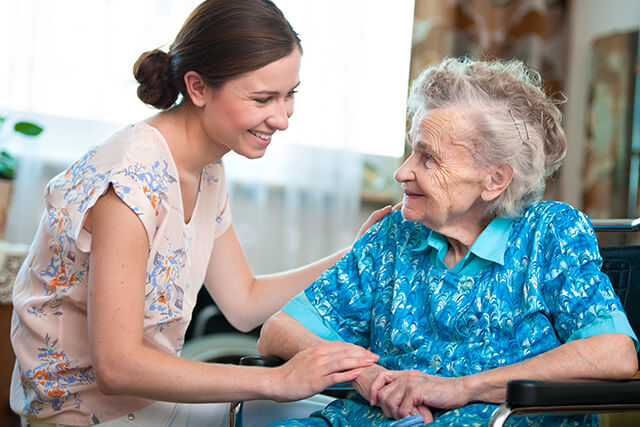
There are only four kinds of people in this world: those who have been caregivers, those who are currently caregivers, those who will be caregivers and those who will need caregivers. Caregiving is universal.
- Rosalynn Carter, Former First Lady of the United States
The Context of Caregiving
According to "Caregiving in the U.S. 2015," the national survey conducted for the National Alliance for Caregiving and the AARP Public Policy Institute, 40 million Americans are providing care for an adult family member or friend, yet few of these identify themselves as caregivers. Often, the things that define being a caregiver, such as helping a parent purchase and organize their medications or taking a friend to their doctor’s appointments, just seems like simply doing what needs to be done when someone needs help.
In simple terms, a caregiver is a person who tends to the needs or concerns of a person with short- or long-term limitations due to illness, injury or disability. The term “family caregiver” describes individuals who care for members of their family of origin, but also refers to those who care for their family of choice. This could be members of their congregation, neighbors or close friends. Family caregivers play a significant role in health care, as they are often the main source of valuable information about the patient.
To understand the importance of a caregiver, think of health care as a three-legged stool. Family caregivers serve as one leg of the stool; professional caregivers (doctors, nurses, etc.) act as another; and the care recipient is the third leg. Without all three legs, health care cannot be as effective as it needs to be.
Quiz: Are You a Caregiver?
A family caregiver can be someone caring for a spouse or parent, an extended family member, or even a friend or neighbor. Do you provide someone help with:
- Transportation to medical appointments?
- Purchasing or organizing medications?
- Monitoring their medical condition?
- Communicating with health care professionals?
- Advocating on their behalf with providers or agencies?
- Getting in and out of beds or chairs?
- Getting dressed?
- Bathing or showering?
- Grocery or other shopping?
- Housework?
- Preparing meals?
- Managing finances?
If you answered “yes” to any of the examples listed above, you are a caregiver and may benefit from the Called to Care program.